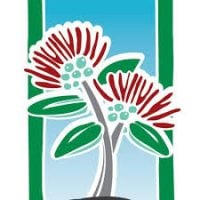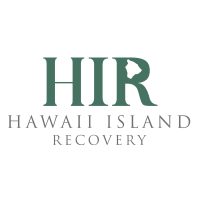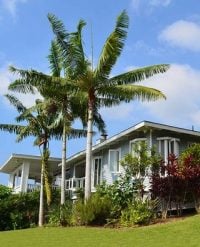Big Island Substance Abuse Council - Kau High & Pahala Elementary School
Drug Rehab Center in Pahala, Hawaii
- Substance Abuse
- Opioid Addiction
- Drug Addiction
- Alcoholism
Big Island Substance Abuse Council - Kau High & Pahala Elementary School is an addiction treatment center in Hawaii that provides a range of personalized services, including counseling, education, and support groups, to help individuals, families, and groups struggling with addiction and substance abuse.
About This Hawaii Facility
Big Island Substance Abuse Council - Kau High & Pahala Elementary School is an addiction treatment center located in Pahala, Hawaii. The organization provides a wide range of services for people struggling with addiction and substance abuse. The center works to provide care for individuals, families and groups, with services ranging from individual and group counseling, to education and support groups.
At Big Island Substance Abuse Council - Kau High & Pahala Elementary School, the goal is to help individuals find a path towards a healthier lifestyle. Through evidence-based treatment, the center focuses on developing personalized treatment plans tailored to the individual’s needs. The center also provides relapse prevention skills and anger management skills, to help those in recovery stay on the right path. Furthermore, the center offers resources such as referrals to other treatment centers, self-help groups, and mental health professionals.
Big Island Substance Abuse Council - Kau High & Pahala Elementary School is accredited by the Joint Commission and is a licensed provider of Alcohol and Drug Abuse Services. The center is also a member of the National Association of Addiction Treatment Providers, as well as the Hawaii Association of Alcohol and Drug Abuse Providers. Additionally, the center has been recognized as a Top Rated Treatment Center by the Substance Abuse and Mental Health Services Administration.
Genders
Ages
Modality
Additional
Conditions and Issues Treated
A drug abuser needs help because if no one helps them, they will not leave their vicious circle.
People who abuse drugs are likely to suffer from an addiction, which can cause serious health problems. It can also cause quarrels with people around them. It is common for drug abusers to have difficulty holding down jobs or relationships, but sometimes people around them can be quite tolerant. There are cases where the families of the drug abusers do not want to see them get any help, and the subject becomes controversial.
When it comes to helping drug abusers get sober, there are many options to choose from. It is essential to state that there is no “correct” way of doing things. People are different, and they need different types of help to get over their addiction.
Opioid addiction treatment should be done in a medically supervised drug rehab. Opioid addiction treatment will include detoxification and drug rehab counseling to help both the user and their loved ones learn how to live a successful sober lifestyle. Methadone, buprenorphine, and naltrexone are three medications that can help treat opioid addiction. Individual drug rehab counseling sessions can be helpful to discuss any questions or concerns with the drug treatment program.
Levels of Care Offered at Big Island Substance Abuse Council - Kau High & Pahala Elementary School
This center offers a variety of custom treatment tailored to individual recovery. Currently available are Drug Rehab, Outpatient, Residential, with additional therapies available as listed below.
Individuals struggling with drug addictions can get help from several treatment options, including inpatient and outpatient programs. Outpatient drug treatment programs can also provide patients with different levels of care, usually depending on the patient’s degree of addiction.
At an outpatient program in Pahala, a patient will attend a recovery program during the day and return home in the evening. Suppose a patient is struggling with drug addiction. In that case, an outpatient program can serve as an effective transition point during the recovery process.
Residential treatment programs are those that offer housing and meals in addition to substance abuse treatment. Rehab facilities that offer residential treatment allow patients to focus solely on recovery, in an environment totally separate from their lives. Some rehab centers specialize in short-term residential treatment (a few days to a week or two), while others solely provide treatment on a long-term basis (several weeks to months). Some offer both, and tailor treatment to the patient’s individual requirements.
Therapies & Programs
Individual therapy is a critical component of addiction recovery. It allows the patients to go deep into their core issues and discover how to handle those problems better. Therapy can be conducted in individual sessions as well as group settings. In individual therapy for addiction, the patient meets with their therapist one-on-one to focus on the underlying issues. This allows patients to open up and discuss personal topics they may not feel comfortable discussing in a group setting. This type of therapy can help develop solutions specific to each patient, which helps speed up the recovery process.
Family therapy is a crucial part of drug treatment and getting sober. It is one of the most effective ways to help addicts stay on the path to long-term sobriety. When a drug addict decides that they want to try and get sober, it takes the support of every person they love to succeed. It can be incredibly difficult for loved ones to watch an addict go through the pain and suffering of withdrawal, but by being there with them and supporting them, they can help to make sure that the addiction never returns.
One of the most important parts of family therapy is the relapse prevention plan. During treatment, therapists and doctors will often sit down with the addict and their family to develop a plan in case the addict ever feels like they want to use again. This plan should involve steps the addict and family can take together to prevent them from relapsing in the future. An addict’s family can play a vital part in helping them to avoid relapse because they can spot the warning signs and help them get back on track before it becomes too much of a problem.
Group therapy helps prevent addicts from feeling isolated or unique in their situation by offering a sense of comfort and fellowship. It also creates a forum for addicts to build their support systems and learn from each other. The group therapy sessions at Big Island Substance Abuse Council - Kau High & Pahala Elementary School occur in a group setting rather than one-on-one to create a safer, controlled environment where addicts feel comfortable.
Big Island Substance Abuse Council Associated Centers
Discover treatment facilities under the same provider.
- Big Island Substance Abuse Council - Kailua Kona in Kailua Kona, HI
- Big Island Substance Abuse Council - Ka Wahi Ola Hou in Hilo, HI
- Big Island Substance Abuse Council - Hilo in Hilo, HI
- Big Island Substance Abuse Council - Connections in Hilo, HI
- Big Island Substance Abuse Council - Laukona House in Hilo, HI
Learn More About Big Island Substance Abuse Council Centers
Additional Details
Specifics, location, and helpful extra information.
Pahala, Hawaii 96777 Phone Number(808) 969-9994 Meta DetailsUpdated November 25, 2023
Staff Verified
Patient Reviews
There are no reviews yet. Be the first one to write one.
Pahala, Hawaii Addiction Information
Hawaii has one of the highest rates of drug abuse in the nation. Methamphetamines and marijuana are the most common drugs involved in drug-related crimes in Hawaii. The state loses $500 million every year due to methamphetamine abuse, according to the Hawaii Meth Project. More than 1 million prescriptions for prescription drugs are given out every year.
Treatment in Nearby Cities
- Kahuku, HI (234.6 mi.)
- Kailua, HI (211.3 mi.)
- Naalehu, HI (11.5 mi.)
- Pearl City, HI (221.8 mi.)
- Kaunakakai, HI (164.8 mi.)
Centers near Big Island Substance Abuse Council - Kau High & Pahala Elementary School




The facility name, logo and brand are the property and registered trademarks of Big Island Substance Abuse Council - Kau High & Pahala Elementary School, and are being used for identification and informational purposes only. Use of these names, logos and brands shall not imply endorsement. RehabNow.org is not affiliated with or sponsored by Big Island Substance Abuse Council - Kau High & Pahala Elementary School.



